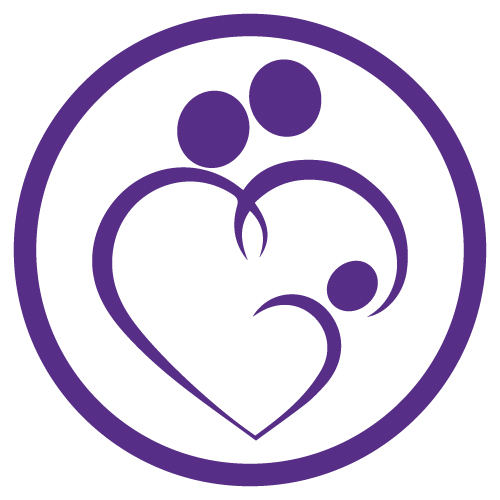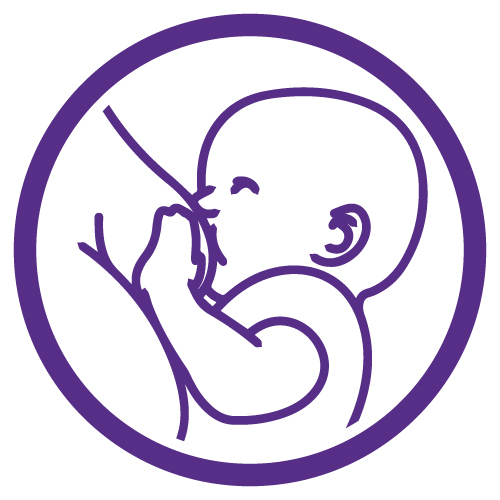 Breastfeeding & Health Online Course(s) & Continuing Education
Breastfeeding & Health Online Course(s) & Continuing Education
Access the latest clinical skills and research for Breastfeeding & Health for Lactation & Breastfeeding professional training. These Breastfeeding & Health online courses provide practice-changing skills and valuable perspectives from leading global experts. This Breastfeeding & Health education has been accredited for a variety of CEUs / CERPs and can be accessed on-demand, at your own pace.

1000 Days in Gap City: Exploring the Relationship Between the Breastfeeding Gap and the Word Gap

Dia has written and/or edited over a dozen books for adults and children. Her passions in life include promoting the concepts and practices of attachment parenting, breastfeeding and safe infant sleep. She is founder and president of two publishing houses—Platypus Media and Science, Naturally! Their books have won numerous awards and have been translated into Spanish, Dutch, Hebrew, Chinese, Russian, Turkish, French and Korean. Dia has led workshops at healthcare, education and parenting conferences across the country. She is the mother of three adult children and lives in Washington, DC.

View Details / Enroll

View Details / Enroll


Anna Le Grange is an International Board Certified Lactation Consultant, Registered Pediatric Nurse, Mindfulness teacher and Author. She has worked with new families for over 20 years in a variety of clinical roles. Anna brings her passion for psychology, neuroscience and mindfulness into her lactation support work and facilitates other professionals to incorporate emotional well-being tools into their own lactation practice. Mother to 3 children, Anna breastfed her 3rd child following breast reduction surgery and experienced first-hand, the emotional challenges that so often relate to infant feeding complexities. She used her personal experiences alongside mindfulness and lactation knowledge, to create a toolbox of techniques for breastfeeding families, which she includes in her courses and book, The Mindful Breastfeeding Book. Anna believes whole-heartedly in prioritizing calm and connection within our breastfeeding support practices, both for our clients and ourselves. Anna is currently studying for a MSc in Positive Psychology at Buckingham New University and has spoken at various events including the Gold Lactation, ILactation Conference and Nurturing The Future.
Topic: Being Mindful: Case Studies of Mindfulness Tools in Clinical Lactation Practice - [View Abstract]
Topic: Breast/Chestfeeding After Breast Reduction - [View Abstract]
Topic: Working With Anxious Parents and Fussy Babies - [View Abstract]
With breast surgery becoming more common, it's important for professionals to understand how it can affect lactation and the experience of breastfeeding or chestfeeding parents. Both an IBCLC and Mum who breastfed her daughter after having breast reduction surgery, Anna Le Grange talks through the implication of breast reduction surgery on lactation, covering both the physiological and psychological challenges that parents face. As well as sharing the experiences of those who have had breastfed after surgery, Anna introduces practical steps that supporters and professionals can take to help their clients define and strive for their breastfeeding or chestfeeding goals in a gentle and realistic way.

Breastfeeding for Maternal Cardiovascular Health: A Review of the Evidence

Sonia Semenic is an Associate Professor at the Ingram School of Nursing, McGill University (Montreal, Quebec, Canada) and a Nurse Scientist at the McGill University Health Center. After many years of experience as an IBCLC and Clinical Nurse Specialist in maternal-child health, Sonia completed a PhD in Nursing and postdoctoral training in community health. Her research aims to better understand the process of knowledge translation (KT) in perinatal health, with a particular focus on the implementation of evidence-based practices to protect, promote and support breastfeeding. She currently co-leads the Knowledge Translation Platform for the Quebec Nursing Intervention Research Network, and teaches graduate courses on knowledge translation in nursing practice.
Topic: Moving from Evidence to Practice: Knowledge Translation and Breastfeeding Support - [View Abstract]
There is mounting research evidence that lactation is associated with both short- and long-term benefits for maternal cardiovascular health. Observational studies have found that lactation can lower maternal blood pressure, risk of metabolic syndrome, and other markers of cardiovascular risk (Rameez et al, 2019; Qu et al, 2018), and a recent meta-analysis involving more than 1 million individuals concluded that breast/chest-feeding is associated with a 10% lower risk of fatal and non-fatal cardiovascular disease or stroke in later life (Tschiderer et al, 2022). Potential explanations for the cardioprotective impacts of lactation include the role of lactation in postpartum lipid metabolism (Countouris et al, 2020), beneficial effects of oxytocin on the cardiovascular system (Jankowski, 2020), and the role of oxytocin in the stress response (Brunton et al, 2008). However, the relationship between lactation and cardiovascular outcomes is complex and may be mediated by such factors as obesity and metabolic syndrome (Stuebe, 2015). This presentation will review the latest research evidence related to the association between lactation and cardiovascular outcomes, and provide guidance on how to promote breast/chest-feeding for maternal cardiometabolic health.

View Details / Enroll

Diet Culture and Fat-Phobia: Supportive Counseling Around Weight, Health & Lactation

Bonnie Holt Logsdon (she/her), is a Registered Dietitian, International Board Certified Lactation Consultant, and Certified Lactation Educator™ through CAPPA, and a DONA-trained birth doula with over 18 years of experience in community-based practice.
In her private practice, Bonnie Knows Breast, she blends her nutrition and lactation work to support families during the prenatal and postpartum periods. Bonnie also mentors IBCLC candidate students, teaches the Certified Lactation Educator (CLE) course, and offers public speaking on lactation and nutrition-related topics.
Bonnie is committed to giving personalized, affirming care and education to each family, individual, and professional she works with! Supporting families during this critical and emotional time in their lives is such important work. Bonnie promises compassionate, non-judgmental support and information.
Bonnie and her husband Brent, have a 7-year-old son, Finley. They enjoy quality time together playing board games, cooking, traveling, and hiking in as many National Parks as possible.
The mission of Bonnie Knows Breast is to empower people with education to make informed decisions related to their health and the health of their babies. Bonnie supports families of all backgrounds, structures, and identities and believes everyone deserves to be supported in their journey.
The medical community spends a lot of time and energy discussing weight as it relates to health. This message becomes a focus particularly in the postpartum period when people begin to think about “dropping the baby weight”. A frequently shared statement about breastfeeding is that it may cause weight loss. This information can be the driver for some to decide to breastfeed.
Weight stigma is a topic that surrounds our tiny clients as early as in the womb when we talk about delivering a “big baby” or as we focus on growth charts and weight gain for babies which can be a big trigger for the parent who may have a past history of disordered eating. Comments about a baby being “too big” or having reached a certain weight and now needs solid foods sooner are often discussed.
What do our intake forms ask as it relates to weight or past history of eating disorders? How does our office furniture function to seat people comfortably with all body types? How do we communicate to clients about food intake and the impact of lactation, appropriate weight gain for a baby, or the benefits of breastfeeding?
As healthcare professionals, we have to acknowledge our own biases around weight stigma and actively work to change the way we practice to be weight inclusive for the dyad.

View Details / Enroll

Does Breastfeeding Protect Maternal Mental Health? The Role of Oxytocin and Stress

Dr. Kendall-Tackett is a health psychologist and International Board Certified Lactation Consultant, and the Owner and Editor-in-Chief of Praeclarus Press, a small press specializing in women's health. Dr. Kendall-Tackett is Editor-in-Chief of the journal, Psychological Trauma and was Founding Editor-in-Chief of Clinical Lactation, a position she held for 11 years. She is Fellow of the American Psychological Association in Health and Trauma Psychology, Past President of the APA Division of Trauma Psychology, and a member of APA’s Publications and Communications Board.
Topic: Breastfeeding Helps Mothers Overcome the Legacy of Abuse and Adversity: It Makes All the Difference - [View Abstract]
Topic: Burnout, Compassion Fatigue and Self-Care for Members of the Perinatal Team - [View Abstract]
Topic: Burnout, Secondary Trauma, and Moral Injury in Perinatal Care Providers - [View Abstract]
Topic: Does Breastfeeding Protect Maternal Mental Health? The Role of Oxytocin and Stress - [View Abstract]
Topic: Lessons to Learn from Fed Is Best: How Can We Improve Our Care? - [View Abstract]
Topic: Mother-Infant Sleep Location: It's Not as Simple as it Seems - [View Abstract]
Topic: Trauma and Breastfeeding: Working Effectively with Trauma Survivors - [View Abstract]
Topic: What’s New in Postpartum Depression? A Summary of Current Findings - [View Abstract]
Depression research contains many conclusions that appear to contradict each other regarding the role of breastfeeding. For example, breastfeeding lowers the risk of depression, but depression increases the risk that breastfeeding will fail. Moreover, breastfeeding problems increase women's risk of depression. These findings are not as contradictory as they may seem. By understanding the underlying physiological mechanism, we can understand these seemingly paradoxical findings. This presentation will describe the link between the stress and oxytocin systems, and how they relate to both maternal mental health and breastfeeding. When the stress system is upregulated, depression and breastfeeding difficulties follow. Conversely, when oxytocin is upregulated, maternal mental health and breastfeeding rates improve. This talk also includes the role of birth interventions and mother-infant sleep, as well as practical strategies that increase oxytocin.

View Details / Enroll

View Details / Enroll


Ruth Lucas, PhD, RNC, CLS, received her Bachelor of Science in Nursing from George Mason University (1986) and her Doctor of Philosophy of Science (2011) from the University of Illinois at Chicago. Based on 20 years of supporting women and infants to initiate breastfeeding, her research focuses on the biobehavioral mechanisms of breastfeeding, such as breast and nipple pain. Dr. Lucas and her team conducted a pilot randomized control trial (RCT) as part of the Center for Accelerating Precision Pain Self- Management (CAPPS-M) (P20NR016605). The pilot RCT tested the feasibility, acceptability, and efficacy of a breastfeeding self-management (BSM) intervention for breast and nipple pain during breastfeeding and found the BSM intervention significantly reduced breast and nipple pain and is associated with pain sensitivity polymorphisms. Her published work describes management of pain during breastfeeding, a clinical indictor of infant breastfeeding behaviors, and a biomedical device to measure breastfeeding in real time.
Topic: Promoting Self-Management of Breast and Nipple Pain for Women During Breastfeeding - [View Abstract]
Infant feeding behavior is a complex neurodevelopment behavior. Infant feeding is compressed of infants’ latch and SuPPRT (sucking pressure pattern regulated over time) in both bottle and breastfeeding sessions. In preterm bottle feeding infants, the regulation of these two components is a measure of neurodevelopment. However, infants’ latch and SuPPRT in breastfeeding has not been explored. Dr. Lucas will review infants’ latch and SuPPRT during bottle and breastfeeding and explore how these differences make breastfeeding a more sensitive newborn neurodevelopmental measure. Finally, Dr. Lucas will propose why we should consider differences in infant latch and SuPPRT to be a neurodevelopmental infant measure.

View Details / Enroll

Sensory Processing and Breast/Bodyfeeding: Using Co-Regulation to Support the Feeding Relationship

Gretchen Becker Crabb is an Occupational Therapist, Licensed Professional Counselor, and Endorsed Infant Mental Health Therapist. She is also a Certified Lactation Counselor, La Leche League Leader, and Brazleton Newborn Observation (NBO) trainer.
Gretchen’s passion is rooted in fostering lifelong relationships and connection through co-regulation in pregnancy and beyond. Her unique approach to lactation support and therapy is rooted in culturally attuned sensory, somatic, and trauma-informed mental health techniques.
Gretchen owns and operates a private practice in Madison, Wisconsin. For 21 years, she has provided developmental, trauma, feeding, and attachment support for tiny humans and their caregivers in birth to three, preschool, private practice, and peer group settings. Gretchen is an international speaker, reflective supervisor, and infant mental health consultant. In these roles, she offers compassionate, experiential, and reflective holding spaces for professionals. She is a proud United States Air Force spouse and mother of three boys.
Topic: Infant Mental Health: What Does It Look Like in Practice? - [View Abstract]
Topic: Scent-Sational Connections: The Role of Olfaction in Development - [View Abstract]
Topic: Sensory Processing and Breast/Bodyfeeding: Using Co-Regulation to Support the Feeding Relationship - [View Abstract]
Topic: Vestibular Processing: Using the Sixth Sense to Support Lactation and Parent/Infant Relationships - [View Abstract]
Well-organized sensory systems provide the foundation for relational feeding. Sensory interactions communicate the story of the dyad, a window into strengths and challenges. Encouraging families to attune to their own sensory preferences and that of their infant can significantly influence the dynamics of the body/breastfeeding relationship. This presentation will explore the basics of sensory processing as it relates to provider, parent, and infant co-regulation in the context of body/breastfeeding and lactation support. We will explore basic neurology and cultural influences of the 8 senses though dyadic examples. Ways in which subtle signs of sensory disorganization and sensory processing disorder present in body/breastfeeding relationships will also be reviewed. Participants will learn practical strength-based sensory strategies to support families in the beginning stages of life, feeding, and beyond.

Spirited or Calm: How Temperament Impacts Breastfeeding/Chestfeeding and Parenting

Andrea Herron, is one of the first and longest continuous certified pediatric nurse
practitioners in the United States. After more than 40 years working with breastfeeding
mothers and their babies and teaching parenting classes, she is among one of the
most experienced consultant in the field of lactation. Regardless of the issue or concern,
Andrea has guided thousands of mothers to meet their breastfeeding and early parenting
goals through support groups, lactation consultations, and childrearing education. After
receiving a Master's in pediatric nursing from UCLA, Andrea became an early pioneer in
the back-to-breastfeeding movement, and educated health professionals as an instructor
in the UCLA lactation educator course, all over the United States. Her private lactation practice,
Growing with Baby in San Luis Obispo, California, was used as the national model for
private practices by Women Infant and Children (WIC), the federally funded health and
nutrition program. One of her favorite and most popular topics she teaches through her
Growing with Baby parenting groups is, Understanding Your Infant’s Temperament.
This topic and many of the other topics she teaches are included in her newly released
book, Suckle, Sleep, Thrive: Breastfeeding Success Through Understanding Your Baby’s
Cues. Co-written with Lisa Rizzo.
Andrea has been married to Larry Herron, an orthopedic spine surgeon,
for over 35 years. They are the proud parents of a grown son,
two Labradors, a cat, and parrot. The couple reside in Shell Beach,
California.
Topic: The Relationship Between Parent/Infant Synchrony, Breastfeeding Success and Infant Cues - [View Abstract]
Knowledge about infant temperament has been known since the early 1960s with the release of the ground breaking research of Dr. Alexander Thomas, Stella Chess and Herbert Birch and yet, among the general public there seems to be a lack of information about this important body of science (temperament). When parents perceive their baby as content and seemingly non-demanding, they may be shocked and dismayed to find out during a routine well baby visit that the baby is underweight or is failing to thrive. They thought the baby was content because she didn’t give clear cues, and as a result, was underfed. In another scenario, when the baby is irritable despite frequent feeding mothers may lose confidence and question the quantity and quality of their milk and prematurely wean. The behavior of the intense baby that screams on the scale when weighed and is tortured by the bath is overwhelming and misunderstood. When behaviors are misread or inappropriately responded to, optimal physical and emotional development is potentially affected. This presentation will help the learner understand the classic nine temperament traits and how they are grouped into classifications. The listener will learn about the topic of “goodness of fit “and its impact on the long-term emotional health of the infant and developing child. Finally, with case study examples, the emphasis is on how temperament impacts breastfeeding/chestfeeding.

View Details / Enroll












